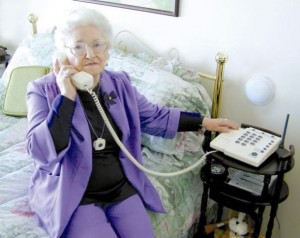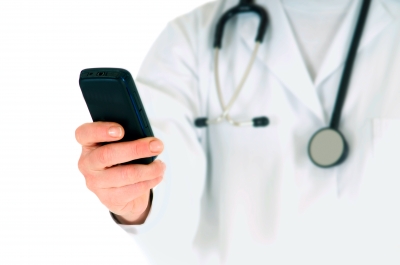June 19th, 2012 by Dr. Val Jones in Health Policy, Opinion
7 Comments »
 Along with the invention of smart phones, an entire medical mobile application (app) industry has cropped up, promising patients enhanced connectivity, health data collection, and overall care quality at lower costs. Last year the FDA put a damper on the app industry’s quick-profit hopes by announcing that it intends to regulate certain medical apps as medical devices. In other words, if the app is used to connect with a medical device or to turn a smart phone into such a device (whether it can check your blood sugar, blood pressure, heart rhythm, etc. or suggest diagnoses), it must undergo safety and efficacy checks by the FDA before it can be brought to market. That process is likely to inflate app development costs exponentially, thus creating a chilling effect on the industry.
Along with the invention of smart phones, an entire medical mobile application (app) industry has cropped up, promising patients enhanced connectivity, health data collection, and overall care quality at lower costs. Last year the FDA put a damper on the app industry’s quick-profit hopes by announcing that it intends to regulate certain medical apps as medical devices. In other words, if the app is used to connect with a medical device or to turn a smart phone into such a device (whether it can check your blood sugar, blood pressure, heart rhythm, etc. or suggest diagnoses), it must undergo safety and efficacy checks by the FDA before it can be brought to market. That process is likely to inflate app development costs exponentially, thus creating a chilling effect on the industry.
I actually think that FDA oversight is a good thing in this case, since it could protect patients from potentially misleading health information that they might use to make treatment or care decisions. But more importantly, I wonder if a lot of this fuss is moot for the largest, sickest, segment of the U.S. population?
For all the hype about robo-grannies, aging in place technologies, and how high tech solutions will reduce healthcare costs, the reality is that these hopes are unlikely to be achieved with the baby boomer generation. I believe that the generation that follows will be fully wired and interested in maximizing all that mobile health has to offer, but they’re not sick (yet) and they’re also not the proverbial “pig in the python” of today’s healthcare consumption.
I’m not saying that mobile health apps have no role in caring for America’s seniors – their physicians and care teams use tablets and smart phones, their kids do too, and a small percent of seniors may adopt these technologies, but I’m a realist when it comes to massive adoption by boomers themselves. Wireless connectivity, texting, personal digital health records, and asynchronous communication is just not in their DNA. Take away a teenager’s smart phone and he or she is likely to be completely flummoxed by reality. Now give that phone to a baby boomer and the flummoxing will be roughly equivalent, but centered upon the device. The teen can’t live without the constant phone/internet connection, and the senior is overwhelmed by the lack of human interface and unfamiliar menus.
What makes me so sure of my pronouncements? I just spent a month making house calls to almost 70 different Medicare Advantage members in rural parts of this country. And I can tell you that almost none of them used any sort of smart phone app to manage their health. These “odd creatures” actually enjoyed face-to-face human contact, they used their phones almost exclusively to talk to people (not surf the Internet), and they took hand-written notes when it was important for them to remember something. They even had paper calendars that they used to schedule their physician appointments and keep records of their medications and procedures. How “weird” is that?!
When I asked one of the seniors if she’d be interested in using a cell phone to check her blood pressure and have that automatically uploaded to her doctor’s office she replied,
“I’m too old to learn that stuff, dear. I’m lucky if I can find my slippers in the morning.”
The reality is that the average app user isn’t sick, and sick people don’t see a need for apps… yet. So our challenge is to meet seniors where they are instead of trying to change their habits. House calls are the best way I know of to get a full appreciation for individual quirks, compliance challenges, and health practices. If we are really serious about reducing healthcare costs in our aging population, it may take some low-tech solutions. As un-sexy as that may be, it’s time that we put down the iPhone and practiced some good old-fashioned medicine.
December 27th, 2011 by BarbaraFicarraRN in Health Policy, Opinion
1 Comment »


Bill Crounse, MD, Senior Director, Worldwide Health, Worldwide Public Sector Microsoft Corporation shares his insights and describes four leading trends and technologies that will transform health and health care in 2012 and beyond.
These leading technologies include: cloud computing, health gaming, telehealth services and remote monitoring/mobile health.
Telehealth, Remote Monitoring, Mobile Health
I’d like to focus on telehealth and remote monitoring/mobile health since I feel telehealth is the nucleus of patient care, and telehealth can help reduce health care costs, and improve quality health care for patients. Telehealth technology combined mobile technology such as smartphones will make monitoring patients conditions easier and more efficient, and “cheaper and more scalable.”
Patient Quality Health Care
Through the Accountable Care Organizational Model (ACO), the core concept is to Read more »
*This blog post was originally published at Health in 30*
August 15th, 2011 by Berci in Opinion
No Comments »

Recently, I’ve had an interview with a national newspaper and the woman who performed the interview told me she was surprised that I seemed to be the first doctor in her life who was happy about patients using the internet. Well, she surprised me with this statement as I’ve never thought about that before. But she must be right. There are many doctors who get upset when they find out the patient tried to find information online. They are frustrated as they don’t even know how to use these online tools and have no idea how to help the patients in this perspective.
Myself, I’m pretty much happy about it. I love to hear patients Read more »
*This blog post was originally published at ScienceRoll*
August 3rd, 2011 by Berci in Announcements, News
No Comments »

FDA has published an announcement about regulations regarding medical mobile applications.
The agency’s draft guidance defines a small subset of mobile medical apps that impact or may impact the performance or functionality of currently regulated medical devices. This subset includes mobile medical apps that:
a. are used as an accessory to medical device already regulated by the FDA
(For example, an application that allows a health care professional to make a specific diagnosis by viewing a medical image from a picture archiving and communication system (PACS) on a smartphone or a mobile tablet); or
b. transform a mobile communications device into a regulated medical device by using attachments, sensors or other devices
(For example, Read more »
*This blog post was originally published at ScienceRoll*
April 19th, 2011 by Michael Kirsch, M.D. in Health Tips, True Stories
2 Comments »

 Your humble Luddite Whistleblower has leapt across the sea to reach the Isle of Technology. I now own and operate an iPhone, which identifies me as groovy, hip and cool, three adjectives that none of our 5 kids ever use to describe their technophobic father. I’m told that my text messages are too long and too frequent. I am admonished that it is not necessary for me to photograph moments of high drama, such as a kid eating breakfast, and then to disseminate the image to my contact list. I am reminded often that I am slow to grasp the mechanical intricacies of the device, such as switching from ring to vibration mode.
Your humble Luddite Whistleblower has leapt across the sea to reach the Isle of Technology. I now own and operate an iPhone, which identifies me as groovy, hip and cool, three adjectives that none of our 5 kids ever use to describe their technophobic father. I’m told that my text messages are too long and too frequent. I am admonished that it is not necessary for me to photograph moments of high drama, such as a kid eating breakfast, and then to disseminate the image to my contact list. I am reminded often that I am slow to grasp the mechanical intricacies of the device, such as switching from ring to vibration mode.
You may wonder how it was possible that I, who consider using an ATM to be a high level computer operation, could make the iPhone, my phone. I knew I couldn’t fail, despite my trepidation of all things cyber. I had a secret weapon, a ‘Plan B’. Actually, I had Plan Z, the most powerful asset that anyone in my situation could hope for. Z stands for Zachy. One sentence will explain all and may provoke screams of envy from those who have no available similar resource. Read more »
*This blog post was originally published at MD Whistleblower*
 Along with the invention of smart phones, an entire medical mobile application (app) industry has cropped up, promising patients enhanced connectivity, health data collection, and overall care quality at lower costs. Last year the FDA put a damper on the app industry’s quick-profit hopes by announcing that it intends to regulate certain medical apps as medical devices. In other words, if the app is used to connect with a medical device or to turn a smart phone into such a device (whether it can check your blood sugar, blood pressure, heart rhythm, etc. or suggest diagnoses), it must undergo safety and efficacy checks by the FDA before it can be brought to market. That process is likely to inflate app development costs exponentially, thus creating a chilling effect on the industry.
Along with the invention of smart phones, an entire medical mobile application (app) industry has cropped up, promising patients enhanced connectivity, health data collection, and overall care quality at lower costs. Last year the FDA put a damper on the app industry’s quick-profit hopes by announcing that it intends to regulate certain medical apps as medical devices. In other words, if the app is used to connect with a medical device or to turn a smart phone into such a device (whether it can check your blood sugar, blood pressure, heart rhythm, etc. or suggest diagnoses), it must undergo safety and efficacy checks by the FDA before it can be brought to market. That process is likely to inflate app development costs exponentially, thus creating a chilling effect on the industry.













